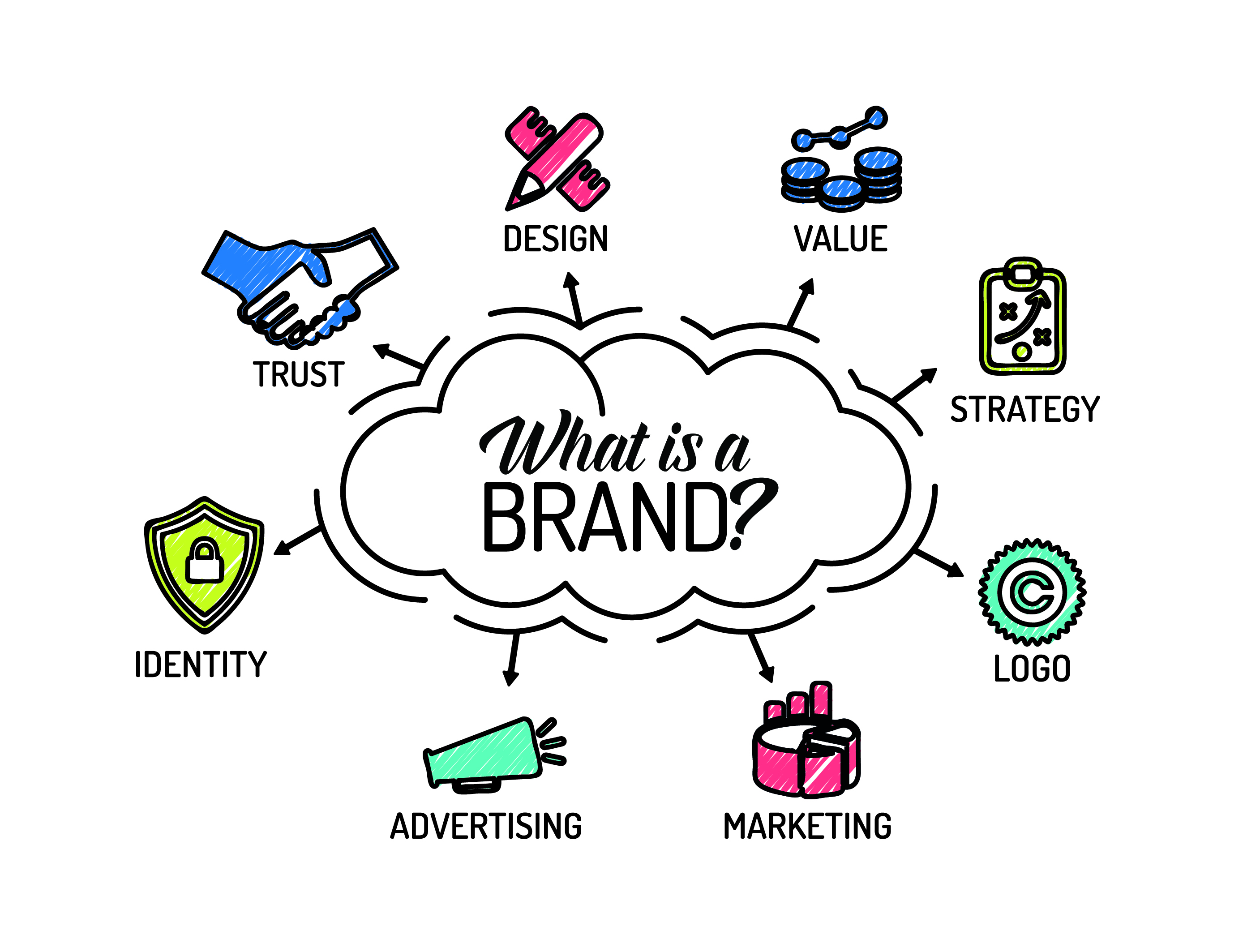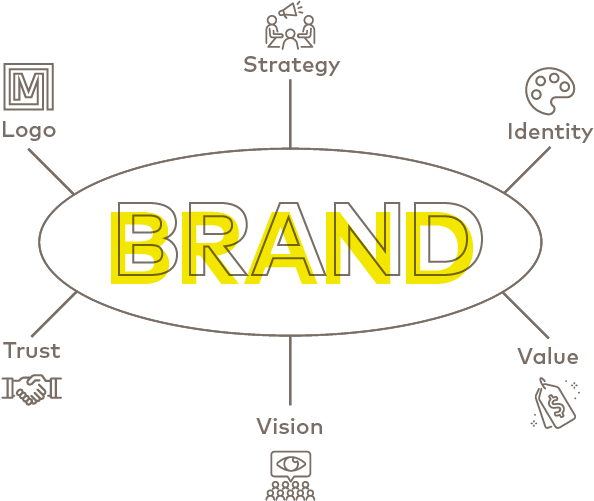Why Structure a Robust Branding Strategy is Secret to Business Success
Wiki Article
Why Durable Branding Is Essential for Market Leadership
In today's affordable landscape, robust branding becomes a vital component for achieving market leadership. A well-defined brand name identity not only sets a firm in addition to its rivals but also grows trust fund and emotional connections with consumers. These elements are essential for fostering commitment and motivating repeat business, yet numerous organizations forget the deeper implications of their branding strategies. As we check out the complex nature of branding, it ends up being noticeable that the stakes are high for those that fail to acknowledge its value in forming long-term service success. What are the specific techniques that can elevate a brand to this esteemed status?Comprehending Brand Identification
Consistently acknowledging the relevance of brand identity is critical for any type of company desiring accomplish market leadership. Brand identification incorporates the visual aspects, messaging, and overall understanding that differentiate a company from its competitors. It acts as a foundation for exactly how customers perceive and engage with a brand name, playing a crucial function in shaping their assumptions and experiences.A distinct brand name identity connects the core values and mission of an organization, producing a psychological connection with its target audience. Elements such as logo designs, shade plans, typography, and tone of voice must align cohesively to convey a consistent message throughout all platforms. This consistency enhances brand acknowledgment and cultivates customer commitment.
Additionally, brand identification is not merely shallow; it reflects the credibility and stability of a company. It should be thoroughly crafted to resonate with the desired audience while staying versatile to evolving market trends. Organizations that focus on a solid brand identity can effectively differentiate themselves, develop a positive credibility, and grow a loyal customer base. Ultimately, a robust brand identification is necessary for navigating affordable landscapes and sustaining long-lasting success.
Building Client Trust Fund
A solid brand name identification prepares for developing consumer trust, a crucial part in attaining market leadership. Trust fund is not simply a psychological action; it is a strategic asset that can significantly influence buying decisions and brand name commitment. Companies that cultivate transparency, dependability, and uniformity in their messaging and actions foster a complacency amongst consumers.To build this count on, brands need to deliver on their assurances. This implies ensuring that product quality fulfills consumer expectations and that service experiences are responsive and positive. Regular communication reinforces integrity; when customers understand what to expect and that their issues will be attended to, their self-confidence in the brand name strengthens.
Social evidence additionally plays an essential function in establishing trust. Positive evaluations, testimonials, and recommendations from legitimate resources improve a brand's credibility and can guide prospective customers. Additionally, engaging with consumers with social platforms and addressing their concerns publicly shows liability and commitment.
Differentiation in Affordable Markets
In today's congested marketplace, differentiation is necessary for brand names seeking to stand apart and catch customer focus. With countless choices available, consumers are often overwhelmed, making it imperative for brands to establish a distinct identity that resonates with their target market. This distinction can manifest with various components, including product attributes, rates approaches, customer support, and brand name messaging.Effective differentiation includes not just recognizing what makes a brand distinct yet likewise communicating these distinctions clearly and continually. Brands should express their value suggestion in a way that addresses specific customer demands and preferences. For instance, a firm may concentrate on sustainability, innovative technology, or personalized consumer experiences to carve out a specific niche in an affordable landscape.
Furthermore, brand names must constantly assess their affordable environment to adapt and fine-tune their distinction methods. This proactive method ensures that they stay appealing and relevant to consumers as market dynamics progress. Eventually, durable branding that stresses differentiation not just fosters brand name loyalty yet also places a firm as a leader in its sector, leading the method for sustained development and market dominance.
Psychological Links With Customers
Psychological links offer as an effective catalyst in building enduring connections in between customers and brand names. When customers reverberate with a brand name on a psychological level, it cultivates commitment that goes beyond plain transactional interactions. Brand names that successfully evoke feelings-- whether with narration, shared values, or authentic interaction-- produce a feeling of belonging for their customers.These emotional check over here connections can considerably affect buying decisions, as consumers are frequently driven by sensations rather than logic. A brand that aligns with consumers' addresses or aspirations their discomfort factors can cultivate an ingrained commitment that brings about duplicate service and positive word-of-mouth recommendations.
Moreover, psychological branding enables firms to differentiate themselves in jampacked markets. By using the beliefs of their target market, brands can carve out an one-of-a-kind identity that reverberates deeply, making them memorable and preferred over rivals.
In an age where consumers are bombarded with options, a strong emotional connection can be the choosing consider brand name preference. Thus, prioritizing psychological interaction is not merely an advertising technique; it is a tactical vital for brands seeking to establish significant partnerships and improve customer retention.
Long-Term Organization Success
Lasting organization growth hinges on the capacity to cultivate durable branding techniques that reverberate with consumers with time. A solid brand not just sets apart a business from its competitors yet likewise promotes commitment and depend on amongst customers. This lasting connection is important for guaranteeing repeat company, which substantially adds to earnings stability and development.In a significantly competitive marketplace, brands that connect a constant and clear message are most likely to prosper. try this web-site This uniformity reinforces brand name identification, making it easier for customers to recall and select the brand name over others. Robust Branding. Because of this, a well-established brand can adjust to market adjustments without losing its core significance, enabling advancement without estranging dedicated consumers
Furthermore, durable branding creates a system for client engagement, where companies can collect responses and adapt their offerings accordingly. This repetitive procedure not just boosts customer contentment but additionally builds a neighborhood around the brand name, fostering a feeling of belonging.
Verdict

Organizations that prioritize a strong brand name identification can successfully separate themselves, develop a favorable online reputation, and cultivate a dedicated customer base.A solid brand identity lays the foundation for constructing consumer depend on, a key component in attaining market management. A solid brand not just distinguishes a business from its rivals yet also promotes commitment and trust among customers. As an outcome, a reputable brand can adjust to market changes without losing its core essence, permitting for innovation without alienating devoted customers.

Report this wiki page